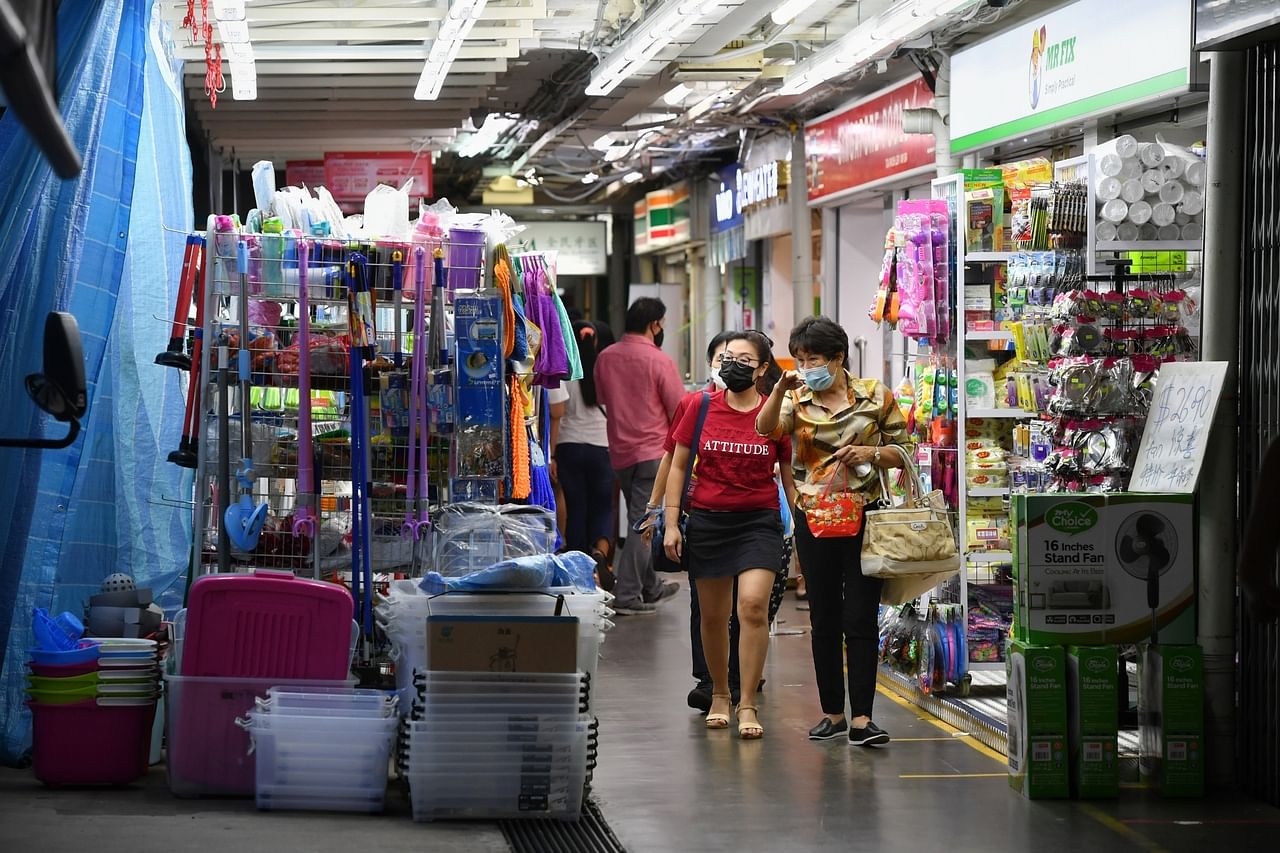Govt launches online survey seeking views on how to rejuvenate heartland shops
Sign up now: Get ST's newsletters delivered to your inbox

The survey aims to gather suggestions on how to refresh HDB shops while preserving their heritage and cultural value in local communities.
ST PHOTO: CHONG JUN LIANG
Follow topic:
SINGAPORE - Singapore residents can contribute ideas and views on how to breathe new life into Housing Board (HDB) heartland shops by participating in an online survey by the Ministry of National Development from Thursday (Feb 3).
The aim of the survey is to seek suggestions on how to rejuvenate these shops while preserving their heritage and cultural value in local communities, said National Development Minister Desmond Lee in a Facebook post on Thursday.
"As Singaporeans' needs evolve, we must explore ways to continually rejuvenate and refresh our heartland shops so that they remain relevant, vibrant and endearing to our community. This is especially so in the face of the rise of online shopping."
Heartland shops, which are often located in or near housing estates, provide convenient and affordable options for residents to get their daily essential goods and services and reflect the distinctive character and identity of the neighbourhoods, he added.
"There are trades or local food unique to shops in specific neighbourhoods, which make them especially endearing," said Mr Lee.
"I'm sure many of us take great pride in introducing friends and family to well-known shops and popular eateries in our neighbourhood, including favourite bubble tea or confectionery shops."
These shops also serve a social purpose, functioning as spaces where residents can meet and interact with one another, he added.
"These shops, especially social enterprises, can also provide opportunities for local and inclusive employment for the community, or even a space for budding entrepreneurs."
HDB has around 15,000 shops spread out across town centres, neighbourhood areas and precinct shop clusters that are either rented out by the Board or owned by private operators.
Last January, the HDB had launched a tender for an eight-month project to look into the social and economic value of HDB shops and the benefits they can bring to local communities, along with the impact Covid-19 has had on these shops.
Mr Yeo Hiang Meng, president of The Federation of Merchants’ Associations, said it is timely for a review as heartland businesses are the heart of the neighbourhoods, particularly during the Covid-19 pandemic where many people are working from home.
Residents who usually do not explore their own neighbourhood have started venturing into heartland shops to see what is on offer and businesses should capitalise on that, he said.
“Even if you’re a traditional stationery shop or a small food stall, people should at least be able to find you on Google to see your opening hours and what you’re selling,” said Mr Yeo.
Clearer way-finding signages and brighter lighting may also help increase footfall to heartland shops, he added.
There has been a ongoing drive by the authorities to help smaller businesses keep pace with digitalisation.
As at November last year, more than 13,000 heartland merchants have adopted e-payment platforms.
Ms Anna Xie, 42, owner of children’s clothing shop Tiny Heart Cottage, has adopted various cashless payment platforms over the last two years in the outlet in Oasis Terrace, a HDB neighbourhood centre in Punggol.
She has another outlet in Nex shopping mall in Serangoon.
“Business is better at the Oasis Terrace outlet because rent is cheaper so profit margin is higher,” she said.
“There are many families living in the area so there’s a steady stream of parents dropping their kids off for tuition or buying food and will shop for kids’ clothes at the same time. So I get many repeat customers.”
Ms Lim Xiu Ru, a lecturer at Singapore Polytechnic’s School of Business, said one of the broad trends post-pandemic is the need for social connections and heartland shops can step up to fill that gap.
“Not all heartland shops want or have the ability to compete on e-commerce platforms and that’s okay, depending on their target market,” she said.
“Beyond just being a place of business, heartland shops have an element of sincerity and familiarity that big-name malls cannot replicate.”

